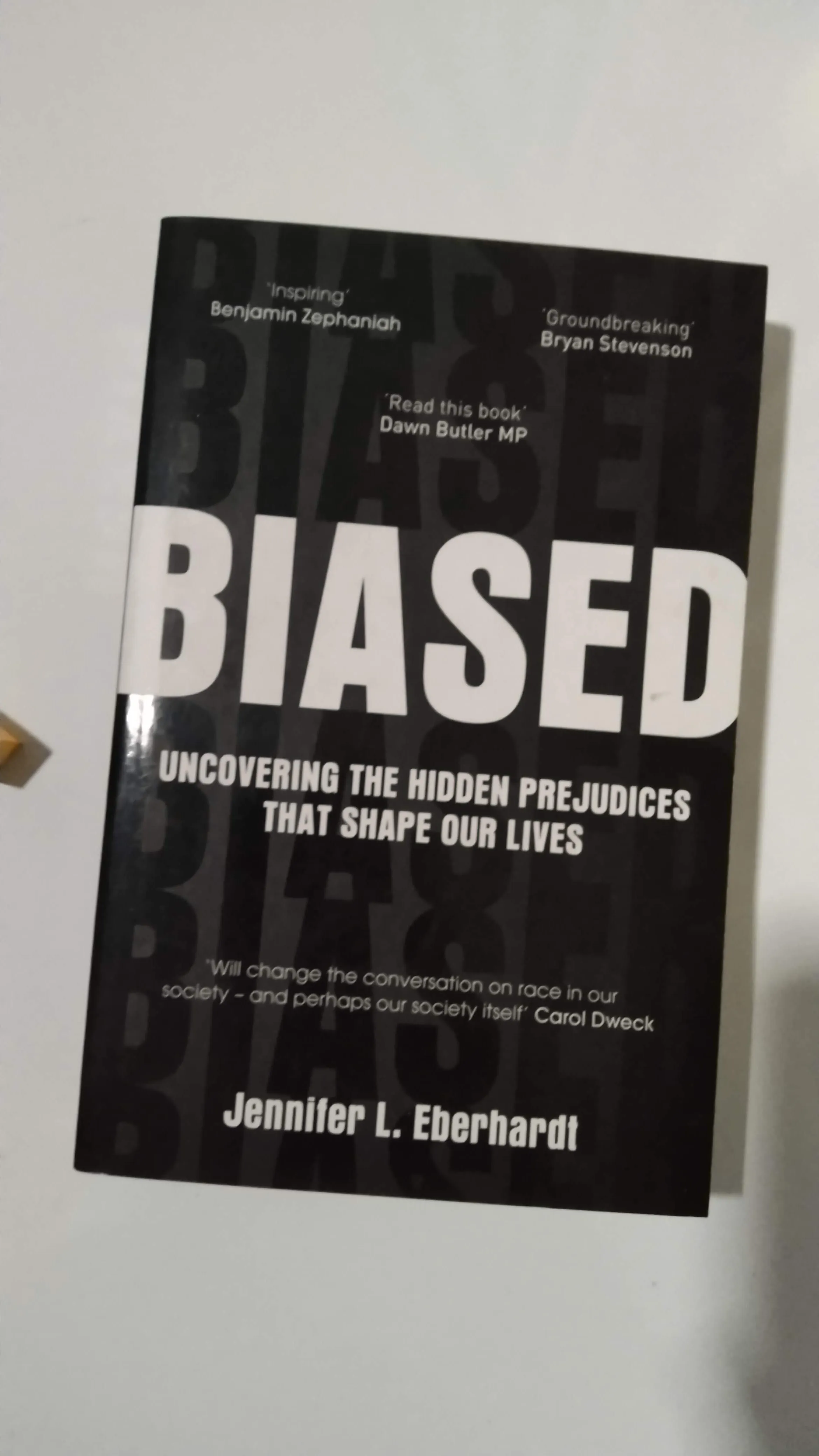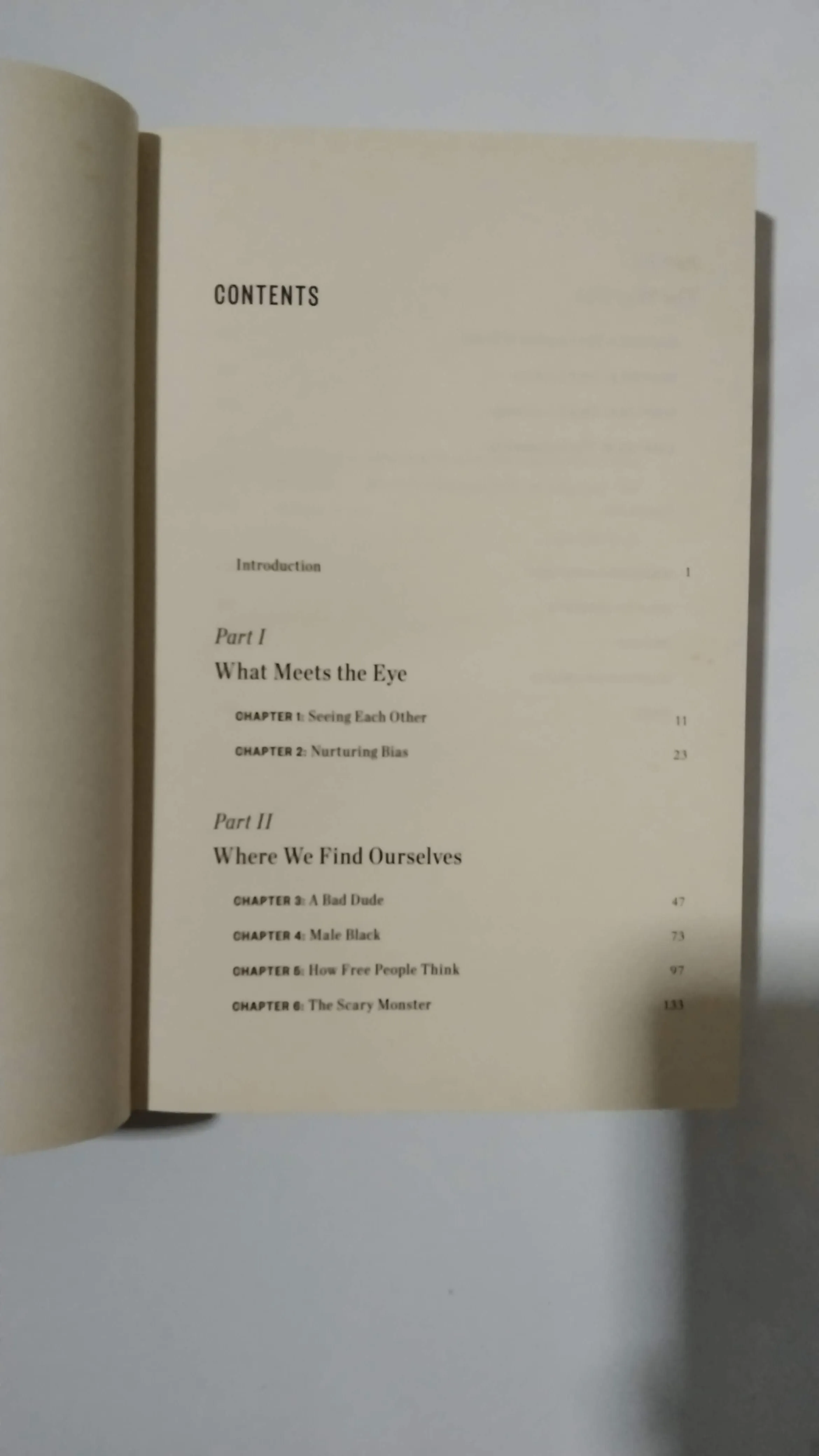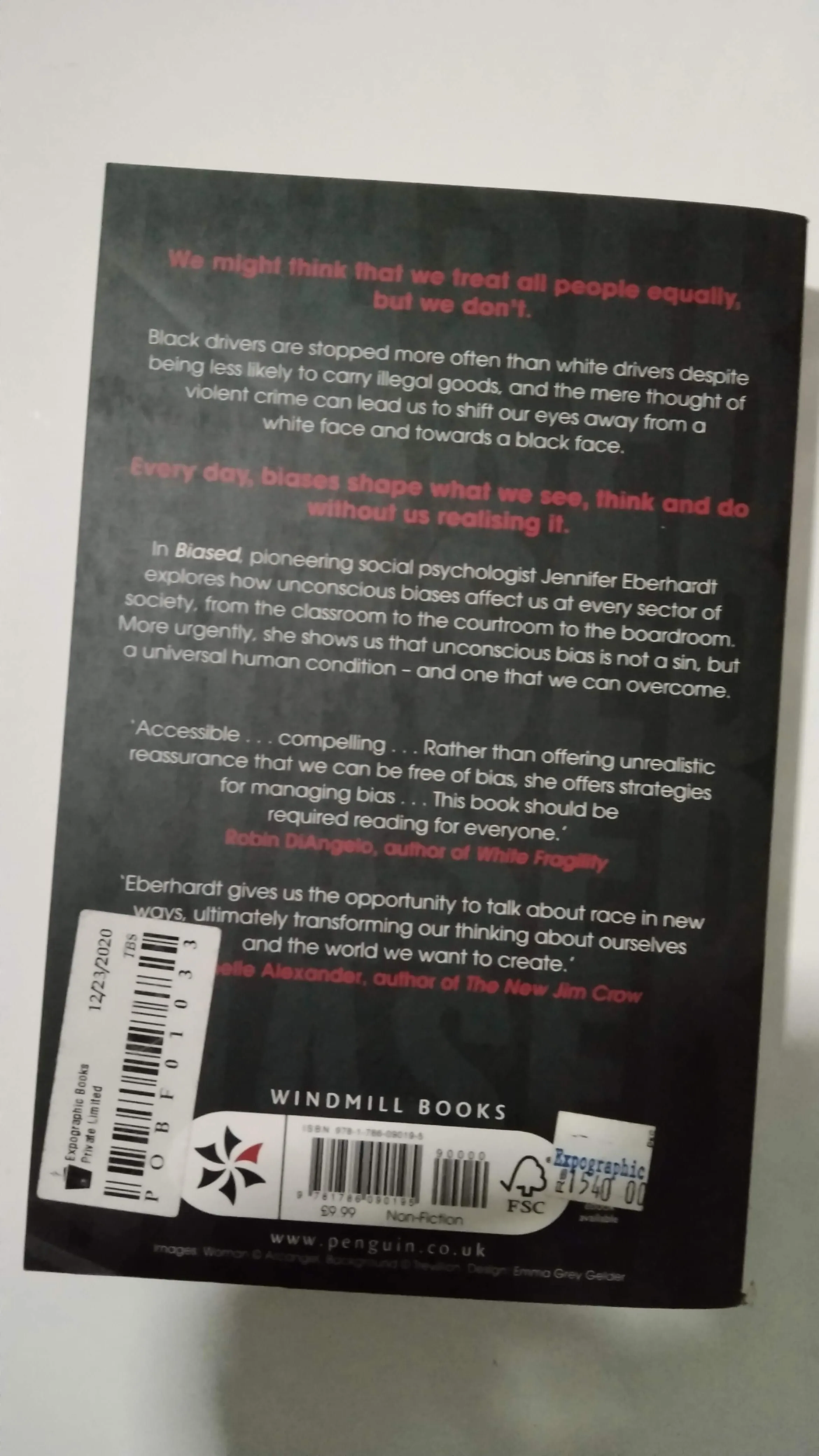Biased: Uncovering the Hidden Prejudice That Shapes What We See, Think, and Do
by Jennifer L. Eberhardt
Explains the concept of implicit bias and its impact on our perceptions, actions, and decision-making. The book explores the ways in which biases can be both subtle and pervasive, and provides strategies for recognizing and reducing them in our personal and professional lives.



"Prejudice is not just a problem of individuals, it is a problem of systems and structures, a problem that touches every aspect of our society."
- Jennifer L. Eberhardt, Biased
My Review:
A powerful and thought-provoking book that delves into the complex issue of bias and prejudice in our society. The author, a renowned social psychologist, uses a combination of scientific research, personal anecdotes, and real-world examples to paint a vivid picture of the many forms that bias can take and the ways in which it shapes our perceptions, decisions, and actions.
One of the most striking things about the book is the way in which Eberhardt demonstrates the pervasiveness of bias, showing how it can affect people from all walks of life and in all areas of society, from education and criminal justice to healthcare and employment. She also explores how bias can be both intentional and unintentional, and how it can be perpetuated by unconscious stereotypes, implicit associations, and societal structures.
Throughout the book, Eberhardt offers a wealth of insights and practical strategies for addressing bias, including ways to recognize and counteract our own biases, how to create more inclusive and equitable environments, and how to foster empathy and understanding towards those who may be affected by bias.
Some of the lessons I learned from this book are:
- Bias is pervasive and affects all aspects of our society.
- Bias can be both intentional and unintentional.
- Bias is perpetuated by unconscious stereotypes, implicit associations, and societal structures.
- Recognizing and acknowledging our own biases is crucial in addressing them.
- Inclusive and equitable environments can help to counteract bias.
- Empathy and understanding towards those affected by bias is important.
- The criminal justice system is heavily impacted by bias.
- Bias can have serious consequences on individuals and communities.
- Addressing bias requires a collective effort from individuals, organizations and institutions.
- The importance of understanding and addressing unconscious bias in the workplace.
Overall, "Biased" is a must-read for anyone interested in understanding the complex issue of bias and prejudice and the ways in which it shapes our society. Eberhardt's writing is engaging and accessible, and her insights are both profound and actionable. This book is a valuable resource for anyone looking to make a positive change in their own life and in the world around them.